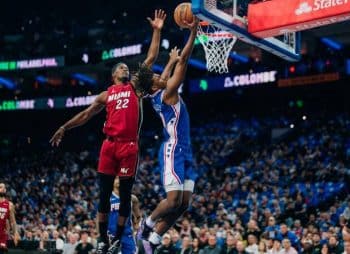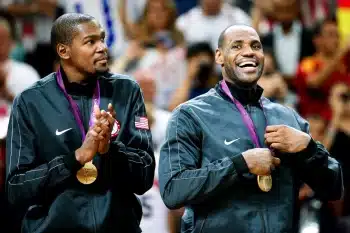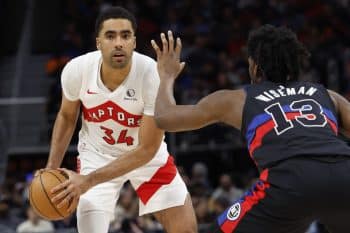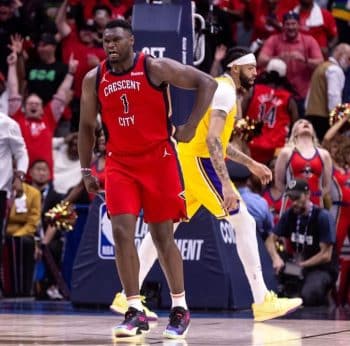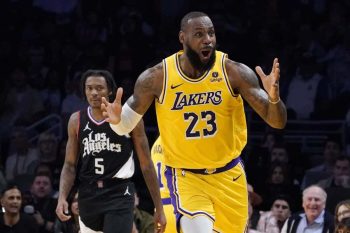NBA
NBA Daily: Brandon Clarke Wins Big In Vegas

No player had a better Summer League than Brandon Clarke of the Memphis Grizzlies.
Not only did his team win the Las Vegas Summer League championship, but Clarke was the Finals MVP and MVP of the tournament. In six games of action, he averaged 14.7 points, 9.8 rebounds, 2 assists and 1.8 blocks. He dropped 15 points, 16 rebounds, four assists, and three blocks in the championship game. He was dominant on both sides of the ball throughout the tournament. and there wasn’t really anyone playing that was capable of stopping him.
Accolades aren’t anything new to Clarke. In his lone year at Gonzaga where he transferred to after playing two years at San Jose State, Clarke was First Team All-West Coast Conference, WCC Defensive Player of the Year and WCC Newcomer of the Year. His play during Summer League could have very well earned Clarke significant minutes for the upcoming season.
So why did Brandon Clarke drop so low in the draft? Many had him pegged as a sure-fire lottery selection, but to the surprise of many dropped all the way down to 21 before Memphis traded up to get him.
Most point to the fact that he’s the size of a traditional wing in the NBA, but plays the four or even the five. He stands 6-foot-8 and matches that with a 6-foot-8 wingspan. In college, length doesn’t matter nearly as much as it does in the NBA. Still, after the way he showed out in Las Vegas, many teams are likely scratching their heads wondering why on earth they didn’t pick him up.
Due to the nature of the trade, Clarke wasn’t able to join the Grizzlies until it became official after July 6th.
“It’s getting off all the rust that I kind of had on me,” Clarke said. “Like I’ve said previously, it was tough at the start because I couldn’t practice, I couldn’t really do much with the team, but now I can play again and get used to playing team basketball.”
The rust wasn’t as obvious to the onlooker. There wasn’t really a single game during the 10-day event where Clarke looked fatigued, but his play definitely improved as the tournament went on.
The semi-final game against the New Orleans Pelicans was a tough matchup and eventually went into overtime. Clarke sealed the win with a go-ahead dunk in the closing seconds. When asked about the end of that game compared to a big, close college game, Clarke responded: “It felt pretty similar. The crowd really got kind of loud there in the end. I feel like it was pretty similar to what I’d feel in a big-time college game.”
Shortly after, Clarke was asked about his desire to actually win the tournament.
“It’s just basketball,” he said. “Every time that I play basketball I want to win so I think that we all feel that as a team. Even though it’s not a real NBA tournament, well it is, but it’s not [versus] the big-time NBA dudes. We all still want to win.”
He wasn’t just messing around, either. Clarke went back the following day and led his team to a W.
One thing that really differentiates Clarke from most other rookies drafted in the first round is his age. A lot of players that get drafted early on are younger. Teams draft them as projects based on their playing profile, size, abilities, etc. Clarke – thanks in part to his two years with San Jose State and one redshirt year with Gonzaga – will turn 23 this fall.
When asked if his age gives him an advantage, Clarke agreed.
“Yeah, I would probably say so. If I was playing right now and I was only 18 or 19 I could see why it would be tougher,” he said. “But me being almost 23, I feel like I played in many games that were just like this one tonight.”
There’s no doubt that Clarke’s large volume of collegiate experience will give him an advantage during the long NBA season. He’s played against high-level talent for three seasons in total and had almost four years to develop his various skill sets.
Clarke talked a bit about the process of ending his college career, the draft, and then summer league.
“It’s been a long journey really,” he said. “Lot’s of workouts, lot’s of time put in. But I’m here playing, it’s been super fun and I’m just really happy to get this feel of what NBA games are actually like. Just trying to get that feel back and get better at playing team basketball for the Grizzlies.”
Clarke could truly be considered the ultimate anomaly in today’s NBA. Sure, he’s super athletic, smooth around the rim, and has elite finishing abilities (he led the NCAA in field goal percentage last season). But he’s a big trapped in a wing’s body. There’s one skill that, if developed, could really bring his game to the next level.
“My shooting. That’s been something I’ve been working on a lot. If I can add that to my game I feel like I’ll be a much, much better player,” Clarke said. “There’s just so much I’ve added, but I’d probably say shooting is the biggest part and there’s still lot’s of steps I need to take.”
The fact that Clarke understands that already puts him ahead of the pack. Many players spend too much time developing skills that won’t give them longevity in the league. Clarke really has almost a complete package skills-wise, but becoming a better shooter would take his game so far.
The Memphis Grizzlies are 100 percent in rebuild mode. They have special pieces in Jaren Jackson Jr. and Ja Morant, but don’t sleep on Brandon Clarke. He could very easily emerge as a central piece to any success the Grizzlies have down the road.
Athleticism aside, it is clear that Clarke has all the intangibles of a great leader, and that alone could pay huge dividends to both himself and the Grizzlies organization in the seasons to come.
